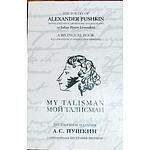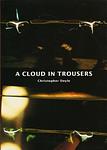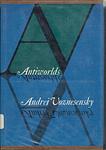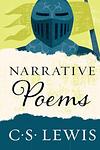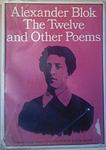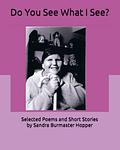The Greatest Russian "Poetry" Books of All Time
Click to learn how this list is calculated.
This list represents a comprehensive and trusted collection of the greatest books. Developed through a specialized algorithm, it brings together 300 'best of' book lists to form a definitive guide to the world's most acclaimed books. For those interested in how these books are chosen, additional details can be found on the rankings page.
Genres
Poetry is a genre of literature that uses language to evoke emotion, paint vivid imagery, and convey complex ideas through the use of rhythm, meter, and sound. It is characterized by its use of figurative language, such as metaphors and similes, and its ability to capture the essence of a moment or experience in a concise and powerful way. Poetry can take many forms, including sonnets, haikus, free verse, and spoken word, and can cover a wide range of topics, from love and nature to politics and social issues. As a category for books, poetry offers readers a unique and intimate glimpse into the human experience, inviting them to explore the beauty and complexity of language and the world around them.
Countries
Date Range
Reading Statistics
Click the button below to see how many of these books you've read!
Download
If you're interested in downloading this list as a CSV file for use in a spreadsheet application, you can easily do so by clicking the button below. Please note that to ensure a manageable file size and faster download, the CSV will include details for only the first 500 books.
Download-
1. Eugene Onegin by Alexander Pushkin
"Eugene Onegin" is a classic Russian novel in verse that tells the story of a sophisticated and cynical young man, Eugene Onegin, who moves from the city to the country following the death of his uncle. Throughout the novel, Onegin engages in a series of interactions with other characters, including Tatyana, a young country woman who falls in love with him. Despite her sincere love, Onegin rejects Tatyana, leading to a tragic duel with his friend Lensky. The novel is renowned for its exploration of Russian society, love, and the human experience.
-
2. The Poetry of Alexander Pushkin by Alexander Pushkin
This book is a compilation of the works of a renowned Russian poet, showcasing his lyrical genius and profound understanding of human emotions. The collection includes a variety of his poems, from love sonnets to narrative pieces, reflecting the poet's versatility and depth. His mastery of language and ability to capture the complexities of life and love make this collection a timeless piece of literature.
-
3. The Bedbug And Selected Poetry by Vladimir Mayakovsky
"The Bedbug And Selected Poetry" is a collection of poems by Vladimir Mayakovsky, a prominent Russian poet of the early 20th century. The book features a mix of Mayakovsky's avant-garde and politically charged works, showcasing his unique style and themes of revolution, love, and the struggles of the working class. Through his powerful and dynamic verses, Mayakovsky offers readers a glimpse into the social and cultural landscape of his time, while leaving a lasting impact with his thought-provoking and emotive poetry.
-
4. Boris Godunov by Alexander Pushkin
The narrative centers on the tumultuous political landscape of Russia following the death of Tsar Ivan the Terrible. It delves into the ascent of Boris Godunov to the Russian throne amidst power struggles, rumors, and the specter of a pretender claiming to be the rightful heir. The story explores themes of ambition, guilt, and the heavy burden of leadership as Boris grapples with his conscience and the consequences of his actions in a period marked by political intrigue, betrayal, and the quest for legitimacy in a nation on the brink of turmoil.
-
5. Requiem by Anna Akhmatova
"Requiem" is a powerful collection of poems that serve as a memorial to the hardships endured by the Russian people under Stalin's rule, particularly focusing on the Great Purge and the Siege of Leningrad. The author, through her deeply personal and emotive verses, gives voice to the suffering and despair of mothers, wives, and daughters who had their loved ones taken away by the regime. The poems are a testament to the resilience of the human spirit in the face of unimaginable adversity, and a poignant tribute to the countless lives lost during this dark chapter in history.
-
6. The Twelve by Alexander Blok
"The Twelve" is a controversial and symbolist Russian poem that weaves together the chaotic and transformative energy of the 1917 Russian Revolution with mystical and religious elements. Set against the backdrop of a blizzard in Petrograd, the narrative follows twelve Red Army soldiers as they march through the city's streets, grappling with their purpose and the violent upheaval of the old order. The poem is renowned for its vivid imagery, complex allegories, and the provocative inclusion of a Christ-like figure amidst the revolutionary fervor, challenging readers to interpret the convergence of spiritual and political themes.
-
7. The Bronze Horseman by Alexander Pushkin
The narrative poem is a romantic tale set against the backdrop of the monumental flood of 1824 in Saint Petersburg, Russia. It follows the young Evgenii, who falls passionately in love with Parasha, a beautiful girl he encounters in the city. However, their budding romance is tragically interrupted by the catastrophic flood, which wreaks havoc across the city. In the aftermath, Evgenii's mind becomes unhinged by the loss and devastation, leading him to fixate on the equestrian statue of Peter the Great, The Bronze Horseman, which he blames for his misfortune. The poem explores themes of man versus nature, fate, and the individual against the backdrop of historical progress.
-
8. The Little Tragedies by Alexander Pushkin
"The Little Tragedies" is a collection of four dramatic poems that delve into themes of greed, envy, lust, and the destructive nature of human passions. Each poem presents a compact narrative focusing on a protagonist who succumbs to a fatal flaw, leading to their downfall. The characters, drawn from various historical and fictional sources, are placed in intense, morally complex situations that ultimately bring about tragedy through their own actions. The work is a profound exploration of the darker aspects of human nature and the consequences of unchecked desires, showcasing the author's skill in blending poetic language with dramatic intensity.
-
9. A Poem Without A Hero by Anna Akhmatova
The book is a profound reflection on the nature of memory, history, and the enduring impact of war. Through a series of interconnected poems, the work weaves together personal and collective experiences, focusing on the tumultuous events of the Russian Revolution and the subsequent Stalinist era. The poet grapples with the themes of loss, betrayal, and the search for redemption, while also paying homage to the artists and thinkers who suffered under repressive regimes. Rich in allusions and steeped in a complex interplay of voices and time periods, the narrative serves as a poignant meditation on the role of the poet and the power of poetry to bear witness to the tragedies of the past.
-
10. The Demon by Mikhail Lermontov
The book is a narrative poem that tells the tragic tale of a rebellious spirit who, after being banished from heaven, roams the earth, filled with bitterness and ennui. The demon falls in love with a beautiful and pure-hearted mortal princess named Tamara, who is about to enter a loveless marriage. His love, however, brings only devastation. As the demon seeks to connect with Tamara, his attempts ultimately lead to her demise, leaving him cursed with eternal loneliness and regret, and further entrenching his status as an outcast from both heaven and earth. The poem explores themes of passion, alienation, and the clash between the spiritual and the carnal.
-
11. A Cloud In Trousers by Vladimir Mayakovsky
This early 20th-century poetic masterpiece blends revolutionary fervor with intense personal emotions, reflecting the tumultuous era of its creation. The work is a four-part epic poem that delves into the author's passionate and tumultuous love affair, juxtaposing his individual romantic experience with broader social and political upheaval. The poet's innovative use of language, rhythm, and imagery breaks from traditional forms, mirroring the chaotic spirit of the time and the poet's desire for both personal and societal transformation. Through vivid and often jarring metaphors, the poem conveys a sense of disillusionment with love and the contemporary social order, while also expressing a fervent hope for a new and better world.
-
12. Who Can Be Happy And Free In Russia? by Nikolay Nekrasov
The book is a narrative poem that explores the harsh realities of peasant life in 19th-century Russia. Through a journey across the Russian countryside, the protagonist, a landowner, encounters various peasants and listens to their stories, which reveal the systemic oppression, poverty, and suffering they endure under serfdom. The work is a poignant social critique, highlighting the vast disparities between the privileged classes and the serfs, and questioning the possibility of true happiness and freedom in a society riddled with injustice and exploitation. The poem's vivid imagery and emotional depth offer a powerful insight into the struggles of the Russian peasantry before the abolition of serfdom.
-
13. Zangezi by Velimir Khlebnikov
"Zangezi" is a complex avant-garde poem that blends elements of drama and epic literature to explore the themes of language, revolution, and cosmic philosophy. The work is structured around the titular prophet-like figure who communicates with both humans and celestial beings, delivering cryptic and prophetic messages. Through a series of chants, monologues, and dialogues, the text delves into the nature of existence and the power of words, employing a unique linguistic style that reflects the author's fascination with the transformative potential of language and his vision of a future shaped by a universal human culture. The poem is known for its experimental use of sound, language, and its radical departure from traditional narrative forms, reflecting the tumultuous changes of the early 20th century and the search for new means of expression.
-
14. The Gypsies by Alexander Pushkin
"The Gypsies" is a narrative poem that explores themes of love, freedom, and societal norms through the tale of a young Russian aristocrat who, disillusioned with society, flees to live with a band of Romani people. Embracing their nomadic lifestyle, he falls in love with a Romani woman, but their relationship is fraught with complexity and ultimately tragedy. The poem delves into the contrasts between the constraints of civilization and the unfettered life of the gypsies, questioning the nature of happiness and the price of freedom.
-
15. Poem Of The Mountain by Marina Tsvetayeva
"Poem of the Mountain" is a lyrical masterpiece that delves into the emotional landscape of the human experience, as it traverses the metaphorical heights and depths of a mountainous terrain. The work is a rich tapestry of imagery and introspection, reflecting the author's profound connection to nature and the tumultuous journey of the soul. Through a series of evocative verses, the poem explores themes of isolation, passion, and the relentless search for spiritual transcendence, capturing the essence of the human struggle against the immensity of the natural world and the inner forces that drive us.
-
16. Antiworlds by Andrey Voznesensky
"Antiworlds" is a collection of poetry that provides a glimpse into the Soviet Union during the Cold War era. The poems are characterized by their avant-garde style, exploring themes of love, politics, and the human condition. The book includes the author's reflections on his travels around the world, his experiences with other cultures, and his perspective on the political climate of his time. The poems are both personal and universal, offering a unique perspective on the world during a period of intense political and social change.
-
17. Poems Of Anna Akhmatova by Anna Akhmatova
This collection presents a poignant anthology of works by a prominent Russian poet, whose verse captures the complexities of life and love against the backdrop of the early 20th century, including the turmoil of the Russian Revolution and the hardships of the Stalinist era. The poems are marked by their lyrical intensity, emotional depth, and personal reflection, often weaving together themes of individual suffering, resilience, and the enduring power of the human spirit. The poet's distinctive voice and masterful use of language have cemented her place as a significant figure in the literary canon, offering readers a deeply moving and introspective journey through her experiences and observations.
-
18. My Half Century by Anna Akhmatova
"My Half Century" is a reflective anthology that encapsulates the personal and professional life of a prominent Russian poetess through her own writings and letters, as well as critical essays about her work. The collection spans the tumultuous periods of Russian history from the early 20th century through the Stalinist era, providing a window into the poet's profound resilience and adaptation in the face of personal and political upheaval. Her poetry, marked by its emotional depth and lyrical beauty, explores themes of love, grief, and the endurance of the human spirit, while also subtly critiquing the oppressive political climate of her time. This compilation not only celebrates her literary genius but also her role as a witness to a critical period in Russian history.
-
19. Alexandrian Songs by Mikhail Kuzmin
"Alexandrian Songs" is a lyrical work that delves into the themes of love, beauty, and aestheticism through the lens of Hellenistic Alexandria. The poetry collection captures the sensuous and hedonistic atmosphere of the ancient city, exploring the passions and desires of its inhabitants. The poet employs rich, evocative imagery and classical references to convey a world where art and life intertwine, and where the pursuit of pleasure and the celebration of the flesh are elevated to an art form. This work is notable for its open exploration of homosexual love, marking a bold departure from the conventions of its time and contributing to the author's reputation as a pioneering figure in modernist literature.
-
20. Narrative Poems by Mikhail Lermontov, Alexander Pushkin
This collection brings together the lyrical works of two of Russia's most celebrated poets, offering a window into the rich tapestry of 19th-century Russian literature. The poems weave together stories of love, heroism, and the human condition, reflecting the tumultuous era in which they were written. With a blend of romanticism and realism, the verses explore themes of nature, passion, and the struggle against destiny, showcasing the poets' profound understanding of emotion and their masterful use of language to evoke vivid imagery and deep feeling. These narrative poems have left a lasting impact on Russian culture and continue to resonate with readers around the world.
-
21. The Twelve And Other Poems by Aleksandr Blok
"The Twelve and Other Poems" is a collection that captures the tumultuous spirit of early 20th-century Russia through a blend of lyrical and narrative poetry. The centerpiece of the collection is a long poem that portrays the chaotic and transformative energy of the Russian Revolution, as seen through the eyes of twelve Red Army soldiers marching through the snowy streets of Petrograd. The work is known for its complex interplay of themes, including revolution, love, betrayal, and redemption, and it employs a range of poetic styles, from the symbolic to the realistic. The additional poems in the collection further explore the psychological and societal upheavals of the time, offering a poignant reflection on a nation in the throes of profound change.
-
22. Selected Poems by Osip Mandelshtam
This collection is an assemblage of lyrical poetry from a renowned 20th-century Russian poet, whose work is celebrated for its classical style, rich allusions, and profound emotional depth. The poems traverse a range of themes, from personal love and artistic creation to the struggles of historical events and the poet's own confrontations with political oppression. The poet's masterful manipulation of language and sound, even in translation, captures the complex interplay between individual experience and the broader cultural and political forces of his time, leaving a lasting impact on the reader and securing his place in the canon of world literature.
-
23. An Arrow In The Wall by Andrey Voznesensky
"An Arrow in the Wall" is a collection of poems that reflect the author's unique perspective on the complexities of life in the Soviet Union during a time of intense political and social change. The poems are known for their innovative style, blending traditional Russian poetic forms with modernist techniques and themes. The poet's work captures the tension between individual expression and the constraints imposed by a repressive regime, exploring themes of freedom, identity, and the power of art to transcend political barriers. The collection is celebrated for its lyrical intensity and its ability to convey profound emotional truths through vivid, often surreal imagery.
-
24. Russia Is Burning: Poems Of The Great Patriotic War by Maria Bloshteyn
"Russia Is Burning: Poems Of The Great Patriotic War" is a poignant collection of poems that captures the raw emotions and experiences of the Russian people during World War II. Through powerful and vivid imagery, the author delves into the devastating impact of the war on both soldiers and civilians, painting a haunting portrait of loss, resilience, and the indomitable spirit of the Russian people in the face of unimaginable suffering.
-
25. F Letter: New Russian Feminist Poetry by Galina Rymbu, Eugene Ostashevsky, Ainsley Morse
"F Letter: New Russian Feminist Poetry" is a captivating collection of contemporary Russian feminist poetry that challenges societal norms and explores themes of gender, identity, and power. Through the powerful and thought-provoking verses of Galina Rymbu, Eugene Ostashevsky, and Ainsley Morse, this anthology sheds light on the experiences and perspectives of women in Russia, offering a unique and refreshing voice in the world of literature.
Reading Statistics
Click the button below to see how many of these books you've read!
Download
If you're interested in downloading this list as a CSV file for use in a spreadsheet application, you can easily do so by clicking the button below. Please note that to ensure a manageable file size and faster download, the CSV will include details for only the first 500 books.
Download
